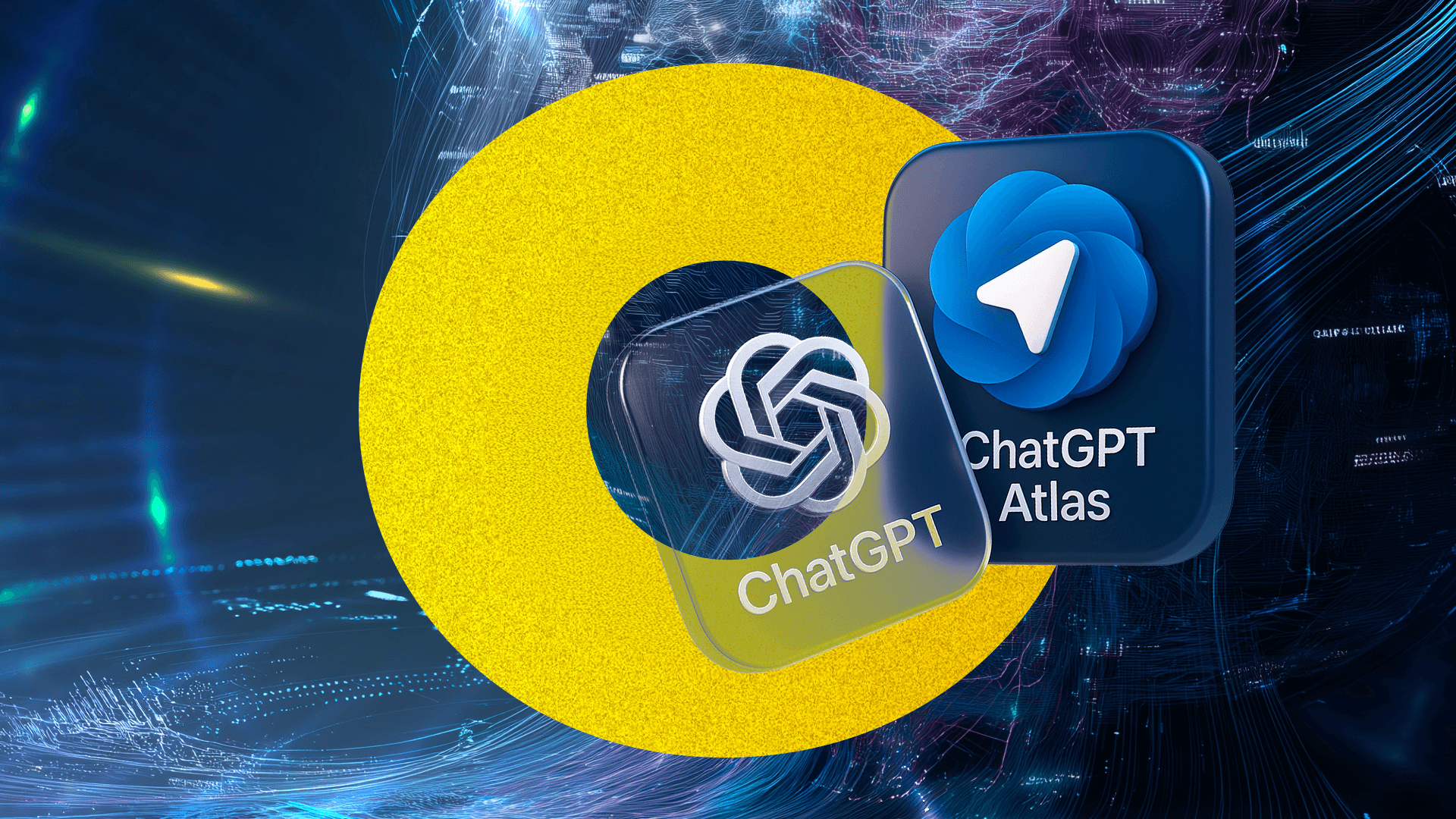ChatGPT Atlas: A New Browser That Could Change Everything?
Philippe Harel, Data.AI Leader at Wepoint, introduce you to ChatGPT Atlas in our first episode of “On décrypte”.

Be honest: you’re probably browsing this article on Chrome, Edge, or Firefox, with ChatGPT waiting in another tab. But what if web browsing and artificial intelligence came together?
Released on October 21, ChatGPT Atlas isn’t just another browser joining the crowd. Atlas was designed from the start as an artificial intelligence whose role is to make your web experience easier. It doesn’t just display pages — it understands them, explores them, analyzes them for you, and can even open tabs, run searches, visit sites, fill out forms… in short, it acts online with surprising autonomy.
So why is OpenAI reigniting the old search engine war?
Because it signals a major shift in how we interact with the Internet, raises serious challenges around security and data protection, and will have a direct impact on everyone who creates online content.
To get a clearer picture, let’s look at where Atlas stands out and where it falls short.
Atlas’ Strengths
- Real-time analysis: Atlas understands the content of the web pages you visit and can instantly answer your questions.
- Autonomous browsing: It explores the web on your behalf based on your requests. It can filter results, navigate menus, or even add items to a shopping cart just like a human would.
- Adaptive memory: Atlas remembers your habits and preferences to adjust its behavior and make your life easier.
Its Limitations
- Restricted access: For now, it’s limited to paying subscribers and available only on Mac, likely temporary restrictions.
- Uneven performance: It can be slow, and errors are still frequent. The “wow” effect fades quickly when you try to use it for longer sessions.
- Weak security: Barely 24 hours after launch, vulnerabilities had already been found. OpenAI responded quickly but recommends not using it for sensitive or regulated data.
Innovation Still in the Making
Atlas is both a technological breakthrough and a product that’s still maturing. Like ChatGPT in its early days, it promises productivity gains but also poses real risks.
What’s fascinating is the dynamic it creates. An AI like Atlas now browses a web already saturated with content generated by other AIs. We’re entering a world where artificial intelligences read, respond to, and compete with one another to capture our attention.
Behind this excitement, several strong trends are emerging. For example, some players are adding AI to their existing models, while others like ChatGPT Atlas are completely rethinking browsing around artificial intelligence. Also, the race to monetize personal data remains alive and well, just under new forms. And finally, this marks a major shift for everyone producing online content. After SEO, we’re now talking about GEO and AIO, the art of being visible in the eyes of artificial intelligences.
All this is shaping a two-speed web: a human web that AIs crawl and interpret without always understanding it, and an AI web that we in turn observe without fully grasping its codes.
Between the two, the line is blurring. And that’s likely where the next great digital revolution is taking place.
Watch our On Décrypte video capsule by our Data.AI Leader, Philippe Harel. (French only)
